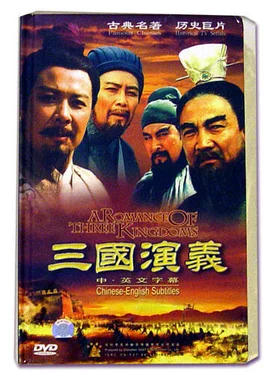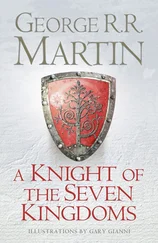While this condition of affairs existed, both the emperor and the leading states reaped immense benefit therefrom. But it could not exist always. The Zhou Dynasty was now on the decline. The royal name had lost all its value; the royal domain had been greatly reduced by occasional grants of land for services rendered by the stronger states. Friendship with Zhou was without profit and so it was no longer sought.
5.4.b. Civil war within each state:Furthermore, the national life had assumed a new phase. It must be borne in mind that, under the feudal system, the land granted by the emperor carried sovereignty with it. Each feudal lord was sovereign over his own domain which was subdivided into estates among his ministers. These ministers were executive officials in time of peace and commanders in time of war. The standing army of a noble was under his immediate control. The growth of estate holders, as was inevitable, always corresponded to that of the state itself. So the strongest states had the most difficult internal problems to face. According to the saying at the time, "the tail often became so large that it could not be wagged at will."
As the predominant states exercised the power of the emperor, so the estate holders exercised the power of a feudal lord. Civil warfare on a small scale characterized the internal condition of each state. Powerful estate holders could depose their master whenever they pleased. This condition was especially true in Jin, the most powerful of the feudal states. It had grown so large that its duke was no longer able to maintain order. The three rival estate holders in this state at length came to some kind of agreement, and the partition of Jin took place.
To the three new states, the founders gave their respective surnames of Wei, Zhao, and Han. This partition was fatal to the existence of Zhou. Had the state of Jin remained intact, Qin would never have come into prominence. As it was, division caused weakness, and no one single state was strong enough to check the eastward advance and aggrandizement of Qin.
The three nearly founded states and four of the older states, each representing the amalgamation of a number of smaller ones, made up the Seven States, and this period of Chinese history is known as the Age of the Seven States, or Warring States. The four older states were Qin in the west, Chu in the south, Yan in the north, and Qi in the east.
5.4.c. Qin:Qin was first known in history as a fourth-class state. Out of gratitude to its chief for military aid in connection with the transfer of the capital, Ping Wang of Zhou gave him permission to annex all territory west of Jin, the earliest home of the dynasty. This easily raised Qin to a first-class state, so far as the area was concerned, and brought it to the border of Jin.
Jin was then the leader in the empire, and as its way to the east was blocked, its rulers were obliged to seek expansion in the west. Intermarriages between the ruling houses of these two states were frequent, but their wars were not few. The decline of the military prowess of Jin gave Qin access to the great empire in the east. Once this door was opened, there was nothing to arrest the tide of expansion which, checked in the west, had now begun to flow in the opposite direction.
Duke Shang of Qin was a wonderful man. By introducing administrative reforms, he succeeded in building the foundation of the first centralized empire in China. The immediate cause of the greatness of Qin lay in the following facts:
(1) The state was in a better financial condition due to more than two centuries of peace.
(2) Natural defense of streams and mountains formed a stronghold which required but small garrisons to become well-nigh impregnable, and from this stronghold, her generals could pour immense armies upon the plains on either side of the Yellow River.
(3) Constant collisions with the western barbarians had given her better soldiers who could carry everything before them.
(4) Her rulers had very little regard for the traditions of ages, but insisted on reforms as the needs arose.
(5) Her rulers had been able to employ the best geniuses of the time for the benefit of their country and people. Among the decrees issued by Duke Shang, one is specially worthy of note, he not only granted official honors and lands to his own subjects, but also invited able people from other states to come to the help of his government. In response to this call, many foreigners flocked to his court. It was these "alien ministers" that helped build up a wealthy and powerful nation.
5.4.d. Yan:Yan was the territory given to Duke Zhao by Wu Wang [King Wurm] of Zhou. Its earlier history is not known. It was north of Qi. During the period of strife between the leading states, she took no part whatever in national affairs, and it was said of her in 539 BC: "She was never a strong power in spite of her numerous horses."
The year 284 BC is a memorable one in her history, because one of her generals invaded Qi and captured more than sixty cities. Her success, however, was only temporary. This able General, Yue Yi [Palka-Rexford] by name, was falsely accused of treason and was superseded by a man of inferior ability.
As a consequence, she was deprived of all the fruits of her former victory. She owed her integrity not to her own standing army, but to her secluded position. The three states of Jin stood between her and the powerful Qin. The northern Tartars were not strong enough to harass her. In fact, she had obtained a large tract of land from them.
5.4.e. Sizes of the Seven States:Of the Seven States, or "Masculine Powers," as they were then called, Chu and Qin each possessed a third of the empire, while the remaining third was divided among the other five states.
5.4.f. Perpendicular and Horizontal Alliances:Qin had begun to cast covetous eyes on the immense territory that separated her from the sea. To check her eastward-growing power, it was necessary for the remaining six states to form a chain of north and south alliances. The party that advocated this policy found in Su Qin [Colvin-Matheson], an able leader. They styled themselves "Perpendicular Unionists." Su Qin traveled from one state to another until he was made Prime Minister of all the Six States and formed an alliance against Qin.
At the same time there existed another party who worked in the interest of Qin and who, in their eloquence, persuaded the other states to make peace with Qin. They wanted to form a line of east and west alliances, hence they called themselves "Horizontal Unionists." This party was headed by Zhang Yi [Willett-Huston], a classmate of Su Qin.
In other words, Su Qin and his school may be called the War party; while Zhang Yi and his followers, the Peace party. These people flocked to the court of every state. When the war party came into power, the armies of the six states were fighting their common foe in the west; but when the peace party directed affairs, their envoys were seen at the capital of Qin, bearing tribute.
Qin had also another plan. By bribery, murder, and intrigues of all sorts, she was able to utilize one or more of the six states as a cat's paw to pull chestnuts out of the fire. In this manner, she exhausted the strength and treasure of her rivals, and gave herself a little rest whilst gathering more strength for the supreme effort.
5.5. The Famous Philosophers
5.5.a. Introduction:The most important event, which has rendered the Zhou Dynasty especially conspicuous in Chinese history, is undoubtedly the birth of Confucius, the greatest of Chinese philosophers. A philosopher may be described as a person who tries by his teaching to lay down general laws or principles. As a rule, philosophy in the earlier times had a background of mystery, and Confucianism is no exception. As Confucius was a disciple of Laozi, the founder of Taoism, some knowledge of the latter system, coupled with that of the religious beliefs and moral standard of the contemporary Chinese teachers, is necessary to a proper understanding of Confucianism.
Читать дальше












